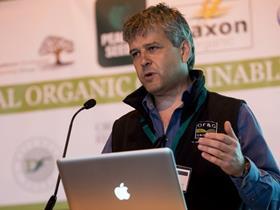
UK prime minister Boris Johnson’s recent move to suspend Parliament may have been described by Commons Speaker John Bercow as a “constitutional outrage”, but it is indeed legal.
The timing of the decision severely limits the ability of MPs to prevent a No-Deal Brexit, paving the way for a future trade deal with the US and the “liberation” of the UK’s farming sector.
“Let’s start now to liberate the UK’s extraordinary bioscience sector from anti-genetic modification rules,” Johnson stated in his first speech as PM, “and let’s develop the blight-resistant crops that will feed the world.”
However, the Government is being urged to consider the broader implications of GM for UK agriculture. According to Roger Kerr, chief executive at OF&G (Organic Farmers & Growers), which certifies more than half of organic land in the UK, GM could in fact make UK farms less profitable.
“A recent Twitter poll suggested 77 per cent of farmers would want to use GM technology if it was available,” he said. “And a large proportion of farmers see many benefits to GM, including increased resistance to pests and diseases, and drought resistance in the face of climate change. Conversely, a survey at Countryfile Live showed many consumers are against the introduction of GM, which puts UK agriculture at odds with a significant proportion of its own consumers.”
He also stressed the economic and scientific issues associated with GM. “The economic issues with GM relate to scale and market access,” said Kerr. “If UK agriculture adopts GM then farmers will find they have to bring their costs of production in line with GM producers in the US and China.”
Agricultural output in the UK is equivalent to just a tenth of the US’s and only 2 per cent of China’s, he pointed out. “The differences in scale are huge,” he said. “Also, some EU markets may be closed to GM products, so assuming a trade deal can be agreed, these higher margin opportunities will be closed to UK producers.”
With the introduction of GM, the whole of UK agriculture will be seen as GM, Kerr said, with some contamination being unavoidable. “This will have implications across the whole sector whether a farmer grows GM or not and will consequently create additional costs, not least with increased testing, impacting on producer returns,” he said.
Kerr also highlighted the “fallacy” propagated by Johnson and others that GM is necessary to feed a growing global population.
“Feeding the world is not an agricultural problem, it’s a political one,” he stated. “People shouldn’t be misled by believing we need to produce more food. The political focus should be on significant revenues lost from discarded food that should be flowing back to farms.”
Ultimately, he said, GM would neither save money, nor benefit the environment, nor make life easier.“With over 40 per cent of insect species at risk of extinction over the next few decades and 75-98 per cent of insect biomass already lost worldwide, the impact of chemical inputs on pollinators and the rest of the ecosystem has been significant,” he said. “Yet with GM, we’re considering introducing insect and fungal resistant crops where potentially harmful genes could enter wild populations. We must ask whether we fully understand the consequences of this both environmentally and economically.”
Kerr revealed that in the short-term the introduction of GM could well boost demand for organic products as sceptical consumers seek out GM-free food.
“But there are long-term economic and environmental implications that could be significant across the whole of the UK agricultural sector,” he added, “which need full consideration and modelling ahead of any decisions made by Government.”



